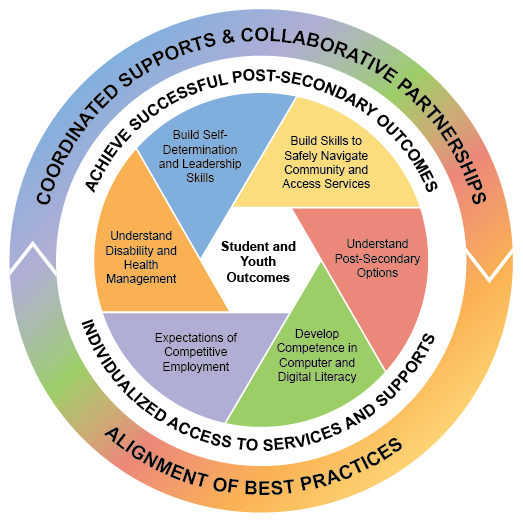You are here
Colorado’s Interagency Sequencing of Services Initiative for Students and Youth with Disabilities

Introduction
Welcome to Colorado’s Interagency Sequencing of Services webpage for professionals, families, and students to learn more about transition timelines, skill development areas, and services available! In 2020 Colorado’s state agencies, education partners, families, and service providers collaborated to develop a shared vision and shared collaborative framework focused on 6 core student outcomes for students with disabilities during their transition before and after high school.
Get Started
- Find out more about transition timelines and what you should focus on at different ages.
- Learn more about skill development areas within the 6 core student outcomes.
- Discover how to build an interagency transition team and how to map services and resources in your community.
Note: This Framework can be used by local transition teams and they may modify the Framework to work with the resources in their community.
Learn More About Colorado’s Sequencing of Services for Students and Youth with Disabilities
Colorado's Interagency Sequencing of Services Initiative
The Benefits of Interagency Transition Teams
Colorado's Sequencing of Services Initiative in Action: Using the Workbook
National Technical Assistance Center on Transition (NTACT) Virtual Presentation
View NTACT presentation (YouTube Video)
Summary:
The framework and workbook were created by state level and local stakeholders to improve individual access to services and supports, build local collaboration and improve student outcomes. This workbook is a tool to help you navigate services for students with disabilities across an age continuum to achieve the 6 Core Student outcomes that include employment, health management, community access, postsecondary opportunities, digital literacy and self-determination/leadership skills. The workbook can help to raise our expectations about what is available to access and ultimately better prepare students with disabilities for adult life.



Connect With Us





